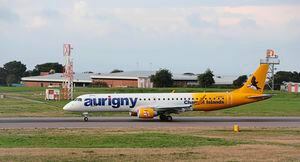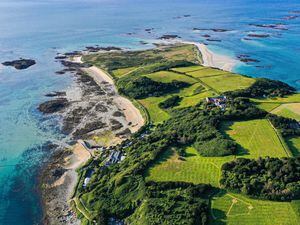Cautious hopes for travel to safer areas
THERE is cautious optimism that almost unrestricted travel to some locations might start at the end of April.

It is a month until the next stage of the Bailiwick Blueprint will come into play, meaning that a traffic light system will vary restrictions for arrivals based on the prevalence of Covid-19 in the area they are coming from.
For areas with fewer than 30 cases per 100,000 people in the previous seven days, arrivals need to be tested. If that is negative, they will not need to self-isolate. They will need another test on day seven.
Jersey currently has only four active cases, so is well below the 30-case threshold. The south-west of England has 28.4 cases per 100,000, while the South-east has 33.9 cases.
Director of Public Health Dr Nicola Brink said it was looking promising.
‘It’s looking good, but we don’t know what’s going to happen,’ she said.
‘Europe is experiencing a third wave in many places, so we don’t know how that’s going to impact on the UK. And if this pandemic has taught me anything, it’s that you just need to look at the evidence as it emerges. But overall I am hopeful, because I would like to see people being able to travel more freely to see family, friends and so on.’
Aurigny has been focusing its services on Southampton Airport, but Civil Contingencies Authority chairman Peter Ferbrache said he hoped the airline would look to organise its schedules based on where there were low cases.
‘Clearly Aurigny has got to be able to gear up – and I think they will,’ he said. ‘We want people to safely be able to travel.’
Both Exeter and Bristol airports are in the south-west and have been part of the Aurigny network in the past.
It is hoped there will be totally free travel from 1 July, by which time it is planned that all adults in the island will have had at least one dose of the vaccine.
But Deputy Ferbrache was cautious about that yesterday.
‘It can’t be come what may, because we don’t know what may come,’ he said.
‘Look at France for example at the moment. They are in a pretty dreadful state and they are only a few miles away from us. But we hope that by 1 July, which is just over three months away, that we will have sufficient procedures in place, that we will be able to move to it.’
France currently has 248 cases per 100,000 people in the last seven days. And it is far from the country with the biggest issue – Estonia has 728 cases per 100,000, while Hungary has 625.
The UK has the sixth-lowest rates of Covid in Europe at 57 cases per 100,000.
Dr Brink said they were looking at countries on a weekly basis to note the prevalence of Covid-19 at that time, as well as hospital admissions and mortality testing rates.





